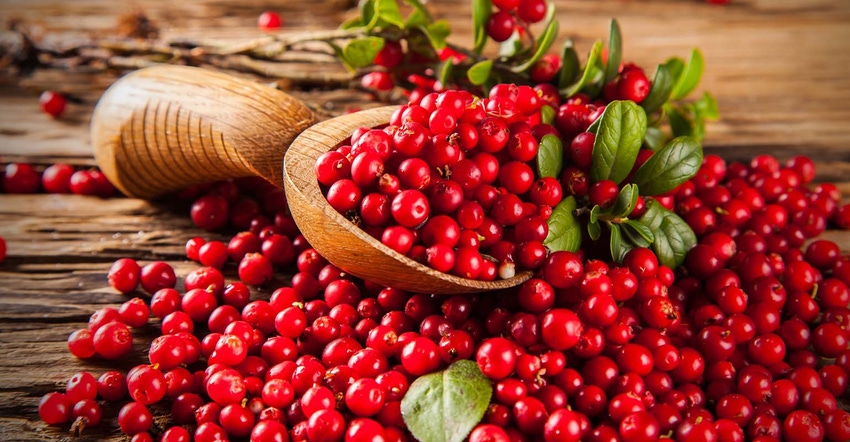
by Jeff Wilson
The American cranberry industry is one of the biggest losers so far in the escalating trade dispute between the European Union and the U.S.
Imports of the red fruit from the U.S. were on the list of goods targeted last week by the EU for a 25% levy in retaliation against American tariffs on steel and aluminum. The U.S. exports about 95 million pounds of cranberries to the bloc each year, according to Tom Lochner, executive director of the Wisconsin State Cranberry Growers. That’s more than any other destination, and accounts for about 12% of domestic production.
"This tariff would significantly hinder our ability to compete in these markets,” Lochner said in an interview.
Cranberries are among a basket of all-American goods -- from peanut butter to bourbon whiskey and Harley Davidson motorbikes -- singled out by the EU. The fruit is synonymous with Thanksgiving Dinner, but it’s also a U.S. agricultural success story. The country is the world’s largest producer, with output up 20% since 2010. The industry has promoted dry fruit in beverages, and exports have jumped 48% in the last six years, in part because of increased sales to China.
Yet cranberries remain a niche market, with only about 1,200 growers. In 2016, the harvest by farmers was valued at $292.3 million while the country’s exports of fresh cranberries, juice, sauces and dried and frozen products was estimated at $340 million. For comparison, total U.S. agricultural exports were $135 billion that year.
U.S. corn and soybean farmers are concerned about what could happen if President Donald Trump withdraws from the North American Free Trade Agreement, or if China targets agricultural commodities in retaliation for the tariffs on metals. But so far, those two major crops have escaped largely unscathed.
"Cranberries are a small segment of U.S. agriculture," said Terry Humfeld, executive director at the Cranberry Institute, a nonprofit organization founded in 1951 to promote cranberry growers and the industry. "But for our little industry to be impacted does not make any sense. We are concerned."
The timing of the trade tariffs comes as the cranberry industry grapples with a surplus. Last year it voted to dispose of some supply in order to balance it with demand. The U.S. Department of Agriculture approved the marketing order last month. The industry is recommending growers reduce output 25% this year, a plan not used since 2001.
"We hope that all parties involved will reach an agreement to continue to allow U.S. cranberry products into the EU," Humfeld said. "This is probably an uphill battle we will have to wage."
To contact the reporter on this story: Jeff Wilson in Chicago at [email protected]
To contact the editors responsible for this story: Simon Casey at [email protected]
Steve Stroth
© 2018 Bloomberg L.P
About the Author(s)
You May Also Like




